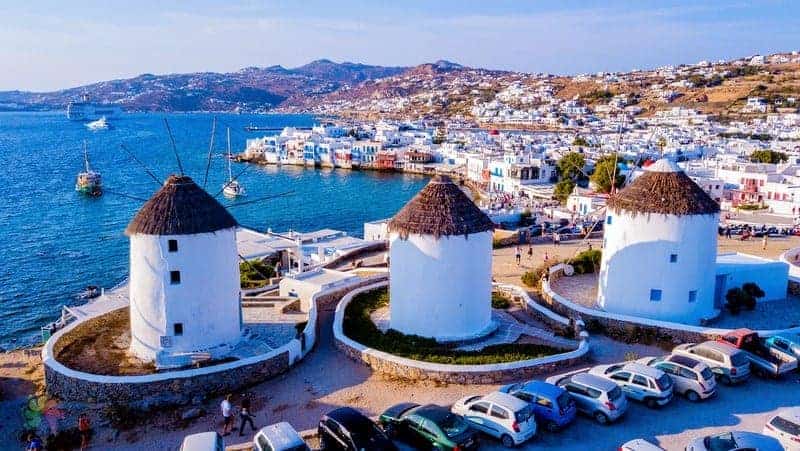Volkswagen launches sustainable mobility services on Astypalea
On the Greek island of Astypalea, the mobility of the future is already becoming a reality.
In the presence of Greece's Prime Minister Kyriakos Mitsotakis and Volkswagen CEO Herbert Diess, both the ridesharing service "Astybus" and the vehicle sharing service "astyGo" went into operation a few days ago. Both mobility services operate exclusively with fully electric vehicles and are intended to provide significantly better mobility on the island compared to the previous local transport system.
It is the next phase in the transformation of Astypalea: by 2026, the island is to be gradually converted to smart, sustainable mobility and the energy system completely renewed. The joint project of the Volkswagen Group and Greece serves as a future laboratory for rapid decarbonisation in Europe.
"The discussion about the shift away from gas, oil and coal towards renewable energies has gained new momentum in Europe. Volkswagen is a driver of this change. Here at Astypalea we are introducing new mobility services as the next step towards the transport system of the future. It is great to see how the project is growing and how people are willing to change their behaviour. It shows that a rapid transformation towards green mobility and energy is feasible when companies and governments work hand in hand." - Herbert Diess, Chairman of the Board of Management of Volkswagen Group
"The project on Astypalea reflects all the advantages of Greece today. It shows how the country's natural wealth and precious human capital, with the support of policies that face the future and its challenges with an open mind and vision, can take the country to the top of the world," says Kostas Frangogiannis, Deputy Foreign Minister of Greece. "I am very proud of what we have achieved so far, for the citizens of Astypalea and the whole country. "
The smart mobility services will replace the traditional bus line, which has provided severely limited local transport on Astypalea. Unlike the bus line, the mobility services will in future operate all year round and connect many more places on the island. The ridesharing service Astybus uses five Volkswagen ID. Buzz will be used as soon as it is launched on the market in autumn 2022. Until then, the service will be operated with the ID.4. Customers can also rent Volkswagen e-cars as well as Seat MÓ e-scooters and Ducati e-bikes via the vehicle sharing service astyGo. The booking is made via smartphone using the integrated astyMove app.
The number of e-vehicles on Astypalea is growing continuously. After the police, airport and authorities switched to electricity last year, the first e-ambulance in Greece has now been added. The first e-taxi is now also in use on the island. Recently, the first private customer took delivery of his ID.3. The Greek state is promoting the switch to e-mobility with attractive purchase premiums.
New solar power system to supply the e-fleet
The energy system on Astypalea is gradually being converted to local, regeneratively generated electricity. Recently, another solar plant was commissioned on the island to supply green electricity for the current e-fleet. At the same time, the Europe-wide tender for the further transformation of the energy system has begun. By 2023, a large solar park is to be built that will supply around three megawatts of green electricity. This should then cover 100 per cent of the energy demand for e-mobility and more than 50 per cent of the islands' general energy demand. By 2026, the energy system is to be further expanded and will then cover around 80 per cent of the total energy demand. Until now, the island has been supplied with electricity from diesel generators.
